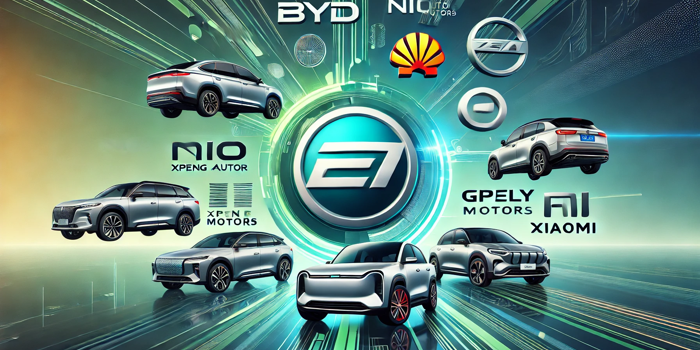
In recent years, China's electric vehicle (EV) industry has seen a surge in innovation and growth. Companies like BYD, NIO, XPeng, and Xiaomi have become household names, not just in China but globally. These companies have been at the forefront of integrating cutting-edge technology into their vehicles, often promoting new features such as autonomous driving, advanced infotainment systems, and seamless connectivity. However, this rapid pace of innovation has raised concerns about whether these companies are placing enough emphasis on security.
The Allure of New Features
Chinese EV makers have been quick to highlight their latest technological advancements. Autonomous driving capabilities, AI-powered personal assistants, and over-the-air (OTA) updates are just a few of the features that have captured the public's imagination. These features are not only appealing to tech-savvy consumers but also serve as key differentiators in a highly competitive market.
The Overlooked Importance of Security
While the focus on new features is understandable, it can sometimes come at the expense of security. The integration of advanced technologies into vehicles introduces new vulnerabilities that can be exploited by malicious actors. For instance, the connectivity that allows for OTA updates also opens up potential entry points for cyberattacks. If these systems are not adequately secured, hackers could potentially gain control over critical vehicle functions, posing significant risks to driver and passenger safety.
Potential Risks
- Cybersecurity Threats: As vehicles become more connected, they become more susceptible to cyberattacks. Hackers could exploit vulnerabilities in the software to take control of the vehicle, steal personal data, or disrupt critical systems.
- Privacy Concerns: The collection and transmission of data from connected vehicles raise significant privacy issues. Without robust security measures, sensitive information such as location data, driving habits, and personal details could be exposed.
- Safety Risks: Inadequate security measures can lead to safety risks. For example, if a hacker gains control of the vehicle's autonomous driving system, they could cause accidents or other dangerous situations.
The Need for a Balanced Approach
To mitigate these risks, Chinese EV makers need to adopt a balanced approach that prioritizes both innovation and security. This involves:
- Investing in Cybersecurity: Companies should invest in robust cybersecurity measures to protect their vehicles from potential threats. This includes regular security audits, penetration testing, and the implementation of advanced encryption technologies.
- Transparency and Accountability: EV makers should be transparent about the security measures they have in place and be accountable for any breaches that occur. This builds trust with consumers and demonstrates a commitment to their safety.
- Collaboration with Experts: Collaborating with cybersecurity experts and regulatory bodies can help ensure that security standards are met and maintained.
Conclusion
While the race to innovate in the EV industry is exciting, it is crucial that security is not overlooked. Chinese EV makers must recognize that the safety and privacy of their customers are paramount. By adopting a balanced approach that emphasizes both new features and robust security measures, they can continue to lead the industry while ensuring the trust and safety of their consumers.
